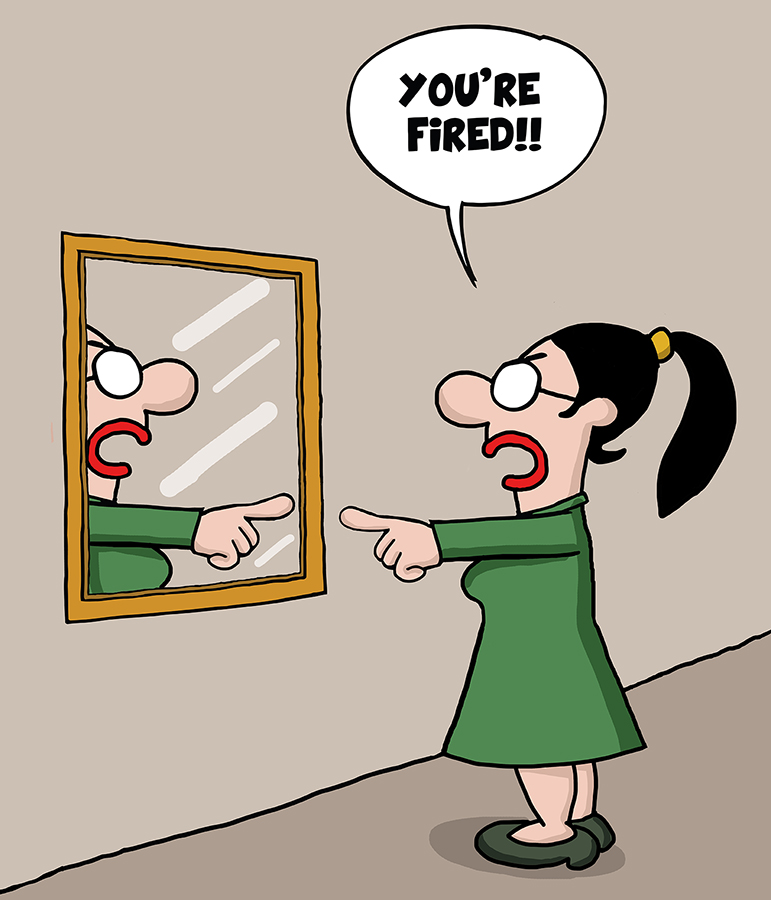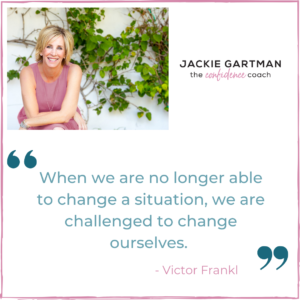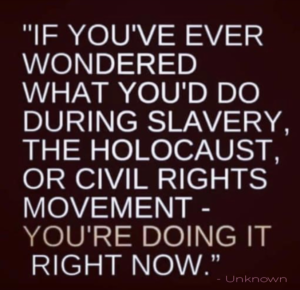
Sometimes, I am a jerk to myself. Sometimes, we all are.
Case in point: last month, my husband and I did a picturesque biking tour of Nantucket and Martha’s Vineyard. 48 hours later, I hosted a three-day Coach’s Retreat in Atlanta.
This was not my original plan.
I have a lot of East coast clients who’d been asking me to come their way, so I decided to host a retreat somewhere near the Vineyard after my cycling trip. But when I couldn’t find a good nearby venue, I ended up booking a mansion on Lake Oconee outside of Atlanta instead. Although I did a great job of staying on top of all the retreat details, I did a completely crappy job of taking into account my chronic insomnia, my likely pour-me-in-a-bucket stamina after cycling 100 miles in five days, and the whims of the airlines. Due to a combination of bad planning and bad luck, I missed my connection. It took me seven hours to get to Atlanta, and I checked into my room close to midnight.
I was running on fumes, but I had to hurry-up-quick get to sleep so I could meet my partner and assistant early the next morning to prepare for the retreat. As I stumbled toward the bathroom to wash up, I saw a giant black rat run in front of the small, mirrored bench in the closet and almost jumped through the ceiling. But when I moved the bench to check it out before calling maintenance, there was no animal or hole in the wall to be found. Baffled, I walked back to the bathroom and shamefully noticed that the big black rat was merely a reflection of my black-socked foot.
In my own defense, it is a pretty scary-looking foot.
It was clear I’d pushed myself too far. So, helpfully, I beat myself up with “how can you be so dumb and what were you thinking” thoughts. When this got old, I pulled the drama card. I imagined myself fainting, being rushed to the hospital, and diagnosed with exhaustion and dehydration—cool, something else I could blame myself for! This, of course, would disappoint my partner and the dozen women attending the retreat so I’d have to give them all refunds. Of course, they’d bad mouth me to the entire coaching community and my practice would tank.
Uggh.
Does any of this sound familiar? Are you like me, and berate yourself for the mistakes you’ve made? Do you create a lot of drama and exaggerate the situation? Perhaps you imagine that this is only happening to you and that no one else can relate so you cut yourself off from others? If you answered “yes” to any of these questions, read on!
Why ya so mean?
Studies have concluded that self-critical people learn their behavior from a parent, another significant person in their life, even cultural and societal roots. But regardless of where it originates, self-flagellation never garners positive results – in fact, research has shown that it promotes anxiety and depression instead. Not exactly a recipe for happiness or reaching our goals. It also explains why pharmaceutical sales are through the roof.
Why ya do it?
Those of us who suffer from ongoing negative self-judgment think that if we drop the whip, we will end up like a sloth, sleeping 23 hours a day and getting up only to nourish ourselves before the next long nap. We believe that self-flagellation makes us more ambitious and responsible and helps us to “toe the line,” while self-compassion makes us soft and less motivated to achieve our goals. The truth is that the dialogue between you and your inner critic is self-abusive. You take on both the role of the criticizer and the criticized or the victimizer and the victim.
How do ya conquer the critic?
One (hyphenated) word: self-compassion.
As compassion expert Dr. Kristin Neff has noted, using self-compassion as a tool to deal with difficult emotions offers you three beautiful ways to calm and center yourself:
- Send yourself kindness and care. Next time you make a mistake, fail, or feel disappointed in yourself, try being gentle and understanding rather than harsh and judgmental. Say to yourself what you might say to a good friend, your child, or someone you love dearly.
- Remind yourself that pain is part of the shared human experience. This is enormously helpful when you are resisting and trying to suppress your negative emotions. We’re not meant to be happy all the time. Ironically, understanding this actually allows your negative emotions to let go of you a lot more quickly.
- Be mindful of your thoughts and emotions. Mindfulness creates tremendous freedom. When you are aware of your thoughts and emotions, you have the opportunity to observe them rather than getting entangled in them and reacting. You also don’t have to take them as truths. Thoughts are only true if you believe them.
Choosing any of these actions helps us let go of painful thoughts, judgments, and emotions. And here’s the best part: you don’t have to rely on someone else to change or try and control the circumstances in order to feel better.
According to Neff, when you make the conscious choice to respond to life’s difficulties with self-compassion rather than self-flagellation, it acts like a cushion for failure and inspires you to take more risks and reach your goals. Pretty cool, huh?
So, what’s da ending?
When I woke up the next morning, nothing had changed. I was still tired, but I made the decision to treat myself the way I would treat my beloved daughter: I acknowledged how I was feeling, I recognized the story I was telling myself, and reminded myself that I was going to be okay. And then I drank a pot of coffee.
The retreat was a smashing success.




